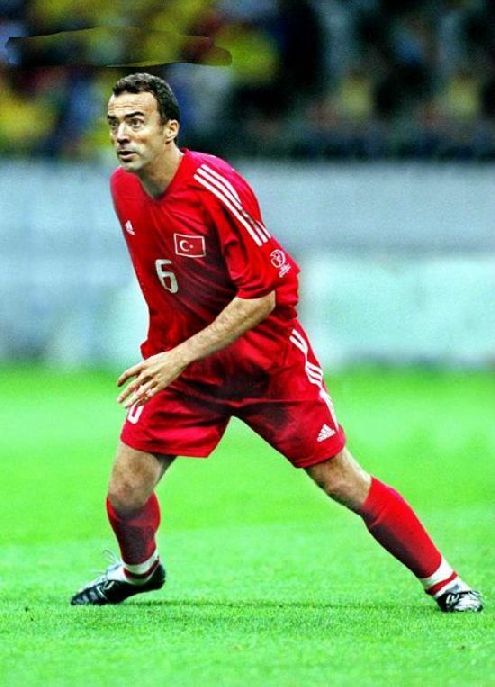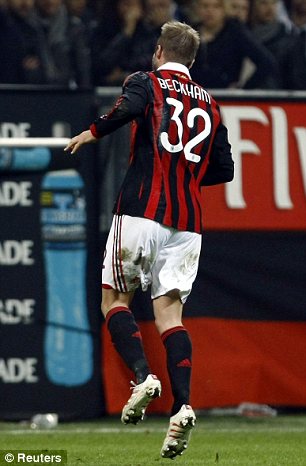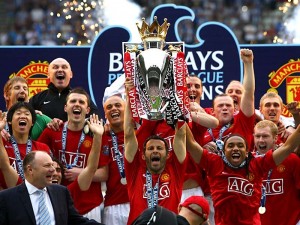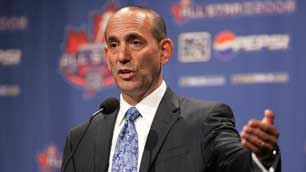Sky Sports has the right idea but the wrong reason
Famed soccer analyst Andy Gray grabbed headlines in the United Kingdom and abroad when he was fired by Sky Sports last week for sexist remarks made about a female linesman Sian Massey before a English Premier League match she was scheduled to help officiate.
Although Sky Sports’ decision wasn’t necessarily motivated by high-minded ideals about the place of women in professional sports, they undoubtedly made the right move.
Gray’s comments (see video above) compounded an off-air incident in December of 2010 where he asked fellow Sky Sports commentator Charlotte Jackson “Charlotte, can you tuck this down here for me?” after lifting up his belt buckle.
Yes, Sky Sports has absolutely done the right thing by getting Gray off the airwaves. It’s just a shame that the leading sports network in Britain and Ireland hasn’t taken a more philosophical approach to the dispute.
I believe that sports – like other aspects of culture, whether they be literature, music, films, whatever – have the power to create a more inclusive society by inspiring people to greater and greater heights.
Any kind of discrimination, even if it’s coming out of the mouth of a beloved figure like Gray, damages that inclusivity and limits the full potential of sports to motivate people.
After all, what kind of message is that sending? “You can grow up to be as successful as these stars, that is, unless you’re a woman. Then you can’t understand the offside rule.”
What’s more, including women and visible minorities strengthens soccer – or any sport for that matter.
If a linesman like Massey really is good enough to work in the EPL, then she should. If she’s replacing an official who was becoming a little old or too slow or was inconsistent in his calls, then her presence will improve the quality of the games.
Isn’t that what the EPL, Sky Sports and the fans of soccer want? Higher-quality matches?
I’m confident that Sky Sports dismissed Andy Gray to avoid a lawsuit and to improve the optics of his on camera gaffe. But that dismissal should have more positive effects in the long run than they had ever imagined.
Although Gray's dismissal does send the message that there is no room in professional soccer for discrimination, Sky Sports should have been even more decisive when they released him from the network and emphasized how important it is to them to create a more inclusive culture in sports.
The World Cup should be watched with a grain of salt

Turkey's Arif Erdem, shown here during his playing days for the national team, was arrested two weeks ago for his alleged involvement in match-fixing.
Although the playoffs (hockey and/or basketball, take your pick) still sit between us and the summer, the Canadian Broadcasting Corporation has already begun to promote their coverage of this year’s World Cup of Soccer in South Africa.
There’s a growing an air of excitement surrounding the tournament. After all, it’s the biggest sporting event in the world, even more popular than the Olympics.
Unfortunately, this time around I’m going to be watching the World Cup with a pretty sceptical eye.
My disillusionment began in Dec. 2008 as I read Declan Hill’s The Fix, an investigation into the world of sports fixing by a journalist who used to work with the CBC and the British Broadcasting Corporation.
I reviewed the book on my now defunct blog, but in short: Hill uncovered a far-reaching criminal underworld that exerts its influence over many sporting events. Hill chose to focus his investigation on soccer matches and his findings were startling.
According to him, there are two kinds of match-fixing scenarios.
1) Internal – When a member of a team gives incentives to officials or the players on opposing clubs to give his team an advantage.
Author Joe McGinniss details this kind of fix in The Miracle of Castel Di Sangro when he overhears several players discussing throwing their final game of the season against Bari. They had been asked to do this “favour” to insure that Bari would be promoted to Serie A.
2) External – When an outsider influences the outcome of a match for personal gain.
Obviously, this is the more typical kind of sporting corruption, with the Black Sox scandal, when the Chicago White Sox threw the 1919 World Series at the behest of Arnold Rothstein, serving as a sterling example.
In The Fix, Hill uncovers evidence of many professional matches being thrown world-wide. The climax of the book is when a mobster assures him that the World Cup itself is fixed. The gangster predicts the results of a handful of matches, down to when the goals are scored.
Hill watches with growing horror as each one of the games ends just as described.
Why is this pertinent now? Because last November German police arrested 15 people for fixing more than 200 games. Two weeks ago, Turkish police detained 40 people, including former international Arif Erdem, for their involvement in thrown matches.
Germany’s Bundesliga and Turkey’s Süper Lig are not the best professional soccer league’s in the world, but they are hardly fly-by-night organizations. In fact, the German national team is one of the best sides in the world and a contender for the 2010 World Cup.
With all this in mind, it will be hard to not be cynical when one of the favourites struggles against an opponent this summer. I simply can’t help but be a little jaded after reading The Fix and hearing about recent events in European soccer.
It’s all but official: Beckham’s career with England is over
 With all the excitement of Sunday’s March Madness selections, the news that David Beckham tore his Achilles tendon in the closing minutes of AC Milan’s 1-0 win over Chievo Verona slipped between the cracks.
With all the excitement of Sunday’s March Madness selections, the news that David Beckham tore his Achilles tendon in the closing minutes of AC Milan’s 1-0 win over Chievo Verona slipped between the cracks.
Although the 34-year-old had surgery to repair it almost immediately, orthopedic surgeon Sakari Orava estimates that it will take six months for him to recover.
This rules Beckham out for this summer’s World Cup in South Africa, and probably means the end of his illustrious, although somewhat disappointing, career as a member of England’s national squad.
Given Beckham’s age, the severity of the injury and the fact that he’d already been cut from the English side once, it’s highly unlikely that fans will ever see him in meaningful play for England again. The 2014 World Cup is simply too far away and even the 2012 European Cup squad would be tough for him to make.
Sure, he’ll probably recover and be able to play for the Los Angeles Galaxy again, but Major League Soccer is hardly a big enough stage for one of the most recognizable athletes in the world.
It’s a sad end for one of the best players in English history. Many felt Beckham would be the Chosen One to bring the World Cup back to Old Trafford, but now he’s missing out on his last chance to return the Three Lions to their former glory.
I’ll be the first to admit that Beckham wouldn’t have been a major contributor to the English cause. In fact, just last week I spotlighted him as a player whoI think is past his prime.
However, he’d still be useful as a role player.
Beckham would have undoubtedly helped England in free kick and penalty kick situations, as well as providing invaluable leadership off the pitch. After all, he’s made 115 international appearances, second only to goalkeeper Peter Shilton's 125 appearances for England from 1970-90.
This injury is the most disastrous moment in Beckham’s international career since 1998 when he was sent off in the crucial World Cup match against hated Argentina.
In any event, it’s heartbreaking that Beckham isn’t getting one last kick at the can, one last opportunity to prove himself as one of the best players England has ever produced. He and his fans worldwide deserved the chance to give him a proper send off with the Three Lions on his chest.
Mea culpa: Manchester United is in financial trouble
 Almost two years ago I wrote on my defunct blogthat European soccer fans should “relax” about foreign ownership like Tom Hicks and George Gillet of Liverpool and the Glazer family of Manchester United.
Almost two years ago I wrote on my defunct blogthat European soccer fans should “relax” about foreign ownership like Tom Hicks and George Gillet of Liverpool and the Glazer family of Manchester United.
Yesterday BBC News announced that Manchester United’s debt has now reached £716 million(that’s $1.1 billion USD), with patriarch Malcolm Glazer handing out loans of £1.67 million to each of his children who happen to be directors of the club.
Hey ManU fans? My bad. I was wrong. The Glazers have put your club at risk with their mishandling of team funds. A small piece of good news is that the Red Devils can stay afloat as long as they keep winning, which they are sure to do.
The original uproar surrounding United was sparked by the Glazers’ takeover of the publicly traded franchise, effectively taking it off the market. The closing remark in my original post was: “Thanks to [the European] system of relegation and ranked leagues, for these men to make money, they need to make sure that their teams are constantly competitive.”
I still believe that, but the Glazers’ tenure as owners of Manchester United is definitely putting my theory to the test.
United is still one of the best teams in the English Premier League. They’re currently in third place, one point behind first place Arsenal, and in a position to return to the Champions League. Forward Wayne Rooney is one of the best players in the league, with 14 goals so far this season.
Their merchandise is as popular as ever, with their familiar red and gold logo still gracing jerseys, shirts, hats and all kinds of kit.
So where is all this money going? Running a professional team of Manchester United’s calibre is always a costly enterprise, but to the tune of £716 million?
According to journalist David Conn on the Guardian’s Football Weekly Extra podcast, the Glazers have loaded the club with the debt they had taken on to buy United. That’s right; the team is paying for its own purchase. That original debt, plus interest and the usual litany of fees from banks and lawyers, has eaten away at the club’s value.
It gets worse. Conn says that contrary to manager Sir Alex Ferguson’s claims, the £80 million in transfer fees collected from Real Madrid for Cristiano Ronaldo’s transfer won’t be available for roster acquisitions, as the money has already been paid towards United’s debt.
In their most recent financial report, Manchester fully acknowledges that if they can’t continue their current competitive pace, they are in grave financial trouble.
This reinforces my belief that relegation/promotion and on-field success are still the keys to making money, but there is still cause for concern. The Glazers are making the same mistakes that launched the financial downturn that is still affecting the global economy. Debt to pay off debt is never sound planning. Although the football side of the team can maintain this pace, the business side definitely can not. Things have to change at Old Trafford, and soon.
Fans of Manchester United, and soccer fans as a whole, should be keeping their eyes on this situation. There’s more than just pride at stake on the EPL tables with United needing on-field success to stay afloat financially.
